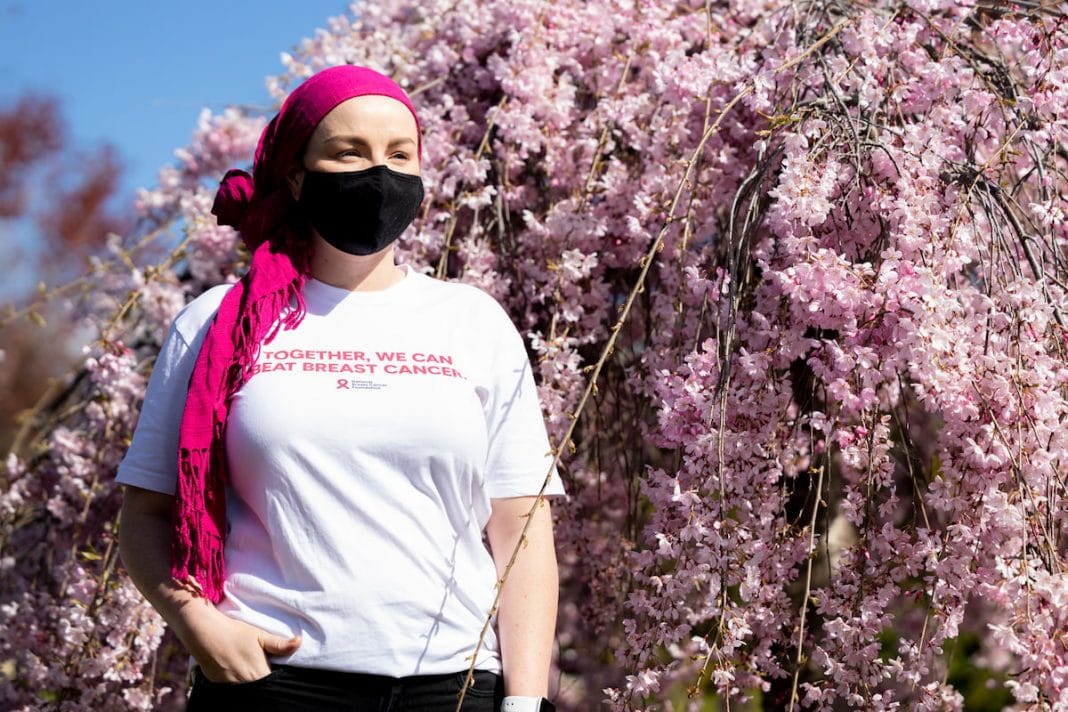It is one of the hardest things that life throws at most of us. With half of all Australians having been diagnosed with cancer by the age of 85, the vast majority of people will see a loved one face a diagnosis in our lifetimes. Yet no one is ever really prepared. What do you do? What can you say? What sort of help can you provide without it seeming like too much, or too little?
Tarryn Fowler, a local mother of two, shared her battle with breast cancer with Canberra Daily, along with what helped her through the most difficult times of her life. When Tarryn was diagnosed, her son was two-and-a-bit years old, and her daughter was not yet 18 months.
The young mum observed an interesting parallel in the best help she received from her family and friends.
“It’s funny because it’s sort of the same as when someone has a baby. Home-cooked meals always help, as they won’t always feel up to cooking. If they have a family, it’s helpful to offer to take the kids out for a day, even just to the park. During chemo, there are days where you feel like you’ve been hit by a bus. Even offering to sleep on the couch in case the kids wake up or coming over to put a load of washing on can help so much.
“Show that you’ve done some research on what they’re going through. My best friend put together this beautiful gift basket that had lollies that were really good for when you’re not feeling hungry, some icy poles for the days you can’t eat, socks to keep your feet warm. At the end there was a bottle of my favourite wine – ‘For us to drink when you beat this’,” she said.
“Having that positive attitude really helps motivate you. You don’t want your loved ones to say, ‘Poor you’. Instead say, ‘It’s okay. You’re going to beat this’ and ‘What can we do to help?’ At the end of the day, it’s just about doing what you can, even if you don’t feel like it’s much.”
Tarryn emphasised that helping your loved one is not limited to when they are going through chemo.
“For me, one of the hardest parts was when it all stopped. The appointments all stopped, you weren’t seeing someone every day or every week, you were on your own. And now that your hair was growing back, and you’re getting back to work, everyone’s like, ‘Oh, you’re better now’. In reality, your body is completely different than before cancer, and you really have to pick yourself up and dust yourself off.”
To look after your loved one in this stage of healing, Tarryn said it’s all about awareness.
“I wasn’t even aware of that low point until my mum had done the research. She said to me, ‘I’m just letting you know, for the next two weeks, I’m going to be checking in on you every day’. And it helped a lot. Just know that even if your loved one has gotten the okay to say they’re healed, it doesn’t mean that they feel okay inside. Particularly if their appearance has changed a lot, or they’ve had to make physical sacrifices.
“Be aware of their internal battles, and what lifestyle changes your loved one may need to make.”
For more information, visit www.cancercouncil.com.au/cancer-information/for-family-and-friends/
Get all the latest Canberra news, sport, entertainment, lifestyle, competitions and more delivered straight to your inbox with the Canberra Daily Daily Newsletter. Sign up here.
For More:



